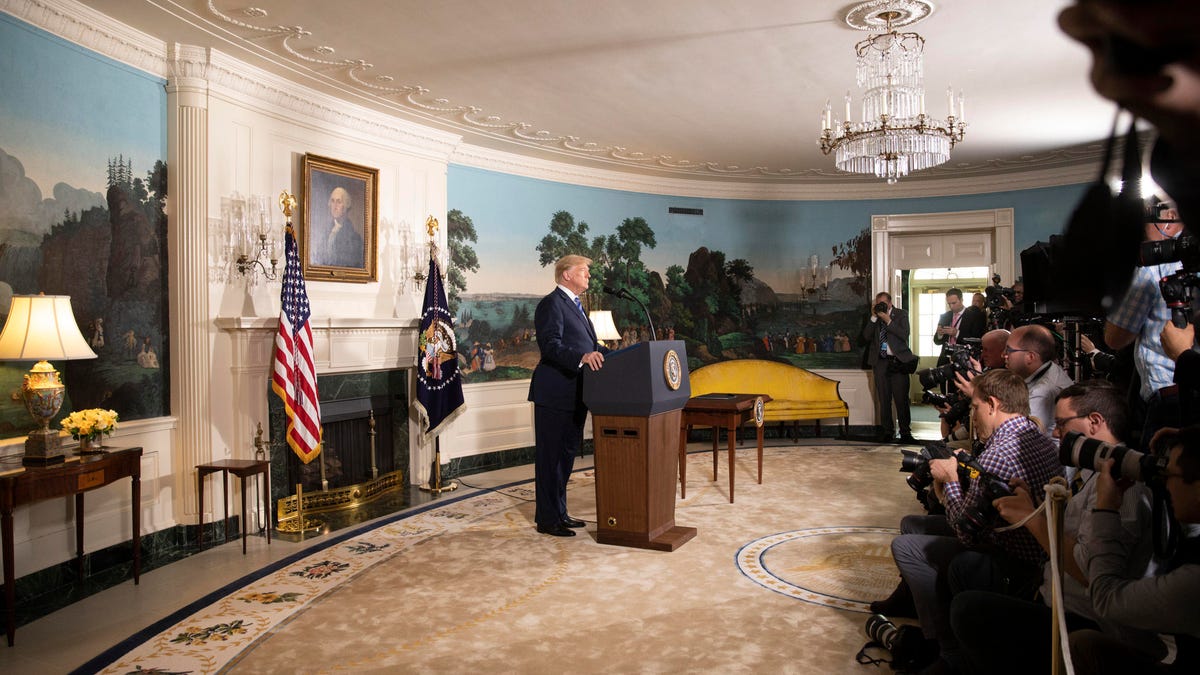AI regulation will be light, says White House
Facebook and Google don't need to put the brakes on artificial intelligence projects, a technology advisor reportedly says.

Pr
Tech industry execs and engineers fretting about any backlash against artificial intelligence technology can rest assured that the White House, at least, isn't likely to slow its spread.
"We didn't cut the lines before Alexander Graham Bell made the first telephone call. We didn't regulate flight before the Wright Brothers took off at Kitty Hawk," said, Michael Kratsios, the deputy assistant to the president for technology policy, in prepared remarks to tech companies.
The views came at an AI summit that drew Amazon, Facebook, Google, Intel and 34 other companies to discuss the technology.
AI is blazing-hot technology right now, a top priority at the world's biggest tech companies, fuel for countless startups, and now even an undergraduate degree program at Carnegie Mellon University. The technology is endowing computers, phones, and online services with new sophistication and human-friendly abilities.
At the meeting Nvidia, whose graphics chips are in high demand at companies training their AI systems on real-world data, called for federal funding into AI research.
"There's simply no replacement for the federal government significantly increasing support for fundamental research to bolster university research. Funding drives research. Research, in turn, drives innovation, from startups to multinationals," Ian Buck, Nvidia's vice president of accelerated computing and a meeting attendee, said in a blog post Thursday.
The Trump administration has generally pledged to keep regulations out of businesses' way, so the remarks on AI aren't a big surprise. But there are some calls for AI regulation, particularly in one domain with big safety implications: self-driving cars.
Although Kratsios advocated a free-market approach to innovation, that has its limits when it comes to people who lose their jobs to AI.
"To a certain degree job displacement is inevitable. But we can't sit idle, hoping eventually the market will sort it out," he said. Trump administration programs to help people adapt include a promotion of apprenticeship program, Pell grants to pay for education, and rural broadband to help people learn online.
Also at the event, the White House said it's formed a new Select Committee on Artificial Intelligence to advise the White House on AI matters, look into government partnerships with industry and academia, and try to improve government coordination of AI research.
First published May 10, 12:07 p.m. PT.
Correction, 2:05 p.m.: Corrects Kratsios' title. Update, 2:20 p.m.: Adds comment from Nvidia. Update, 3:43 p.m.: Adds further detail from Kratsios' remarks.
'Hello, humans': Google's Duplex could make Assistant the most lifelike AI yet.
The Smartest Stuff: Innovators are thinking up new ways to make you, and the things around you, smarter.

